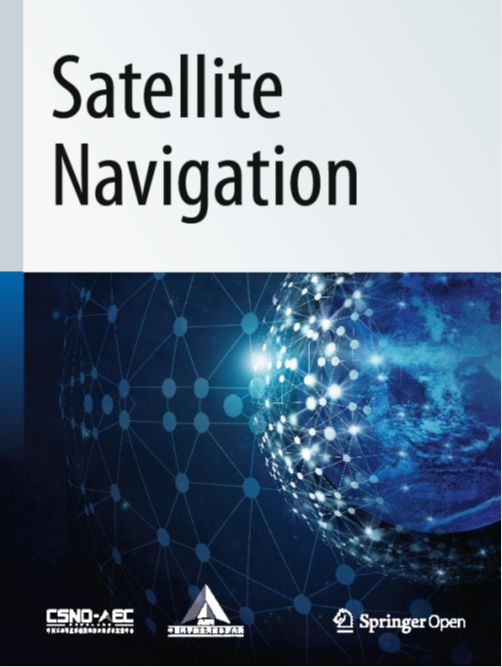Precise orbit determination of Haiyang-2D using onboard BDS-3 B1C/B2a observations with ambiguity resolution
IF 10.1
1区 地球科学
Q1 ENGINEERING, AEROSPACE
引用次数: 1
Abstract
Abstract The Haiyang-2D altimetry mission of China is one of the first Low Earth Orbit (LEO) satellites that can receive new B1C/B2a signals from the BeiDou-3 Navigation Satellite System (BDS-3) for Precise Orbit Determination (POD). In this work, the achievable accuracy of the single-receiver ambiguity resolution for onboard LEO satellites is studied based on the real measurements of new BDS-3 frequencies. Under normal conditions, six BDS-3 satellites on average are visible. However, the multipath of the B1C/B2a code observations presents some patchy patterns that cause near-field variations with an amplitude of approximately 40 cm and deteriorate the ambiguity-fixed rate. By modeling those errors, for the B2a code, a remarkable reduction of 53% in the Root Mean Square (RMS) is achieved at high elevations, along with an increase of 8% in the ambiguity-fixed rates. Additionally, an analysis of the onboard antenna's phase center offsets reveals that when compared to the solutions with float ambiguities, the estimated values in the antenna’s Z direction in the solutions with fixed ambiguities are notably smaller. The independent validation of the resulting POD using satellite laser ranging at 16 selected high-performance stations shows that the residuals are reduced by a minimum of 15.4% for ambiguity-fixed solutions with an RMS consistency of approximately 2.2 cm. Furthermore, when compared to the DORIS-derived orbits, a 4.3 cm 3D RMS consistency is achieved for the BDS-3-derived orbits, and the along-track bias is reduced from 2.9 to 0.4 cm using ambiguity fixing.利用北斗三号B1C/B2a星载模糊分辨率观测数据精确定轨
中国的“海洋- 2d”测高卫星是首批能够接收北斗三号精确定轨卫星系统(BDS-3)新B1C/B2a信号的近地轨道卫星之一。本文基于BDS-3新频率的实际测量,研究了低轨道卫星单接收机模糊度分辨率的可实现精度。在正常情况下,平均可以看到6颗北斗三号卫星。然而,B1C/B2a码观测的多路径呈现出一些斑块模式,导致近场变化幅度约为40 cm,并恶化了模糊固定率。通过对这些错误进行建模,对于B2a代码,在高海拔地区实现了均方根(RMS)显著降低53%,同时模糊固定率增加了8%。此外,对星载天线的相位中心偏移进行了分析,结果表明,与浮动模糊度方案相比,固定模糊度方案的天线Z方向估计值明显更小。利用卫星激光测距在16个选定的高性能站点对所得到的POD进行了独立验证,结果表明,在RMS一致性约为2.2 cm的情况下,模糊固定解的残差至少减少了15.4%。此外,与doris衍生的轨道相比,bds -3衍生的轨道实现了4.3 cm的3D均方根一致性,并且通过模糊定位将沿轨偏差从2.9 cm降低到0.4 cm。
本文章由计算机程序翻译,如有差异,请以英文原文为准。
求助全文
约1分钟内获得全文
求助全文
来源期刊

Satellite Navigation
Multiple-
CiteScore
19.40
自引率
6.20%
发文量
25
审稿时长
12 weeks
期刊介绍:
Satellite Navigation is dedicated to presenting innovative ideas, new findings, and advancements in the theoretical techniques and applications of satellite navigation. The journal actively invites original articles, reviews, and commentaries to contribute to the exploration and dissemination of knowledge in this field.
 求助内容:
求助内容: 应助结果提醒方式:
应助结果提醒方式:


